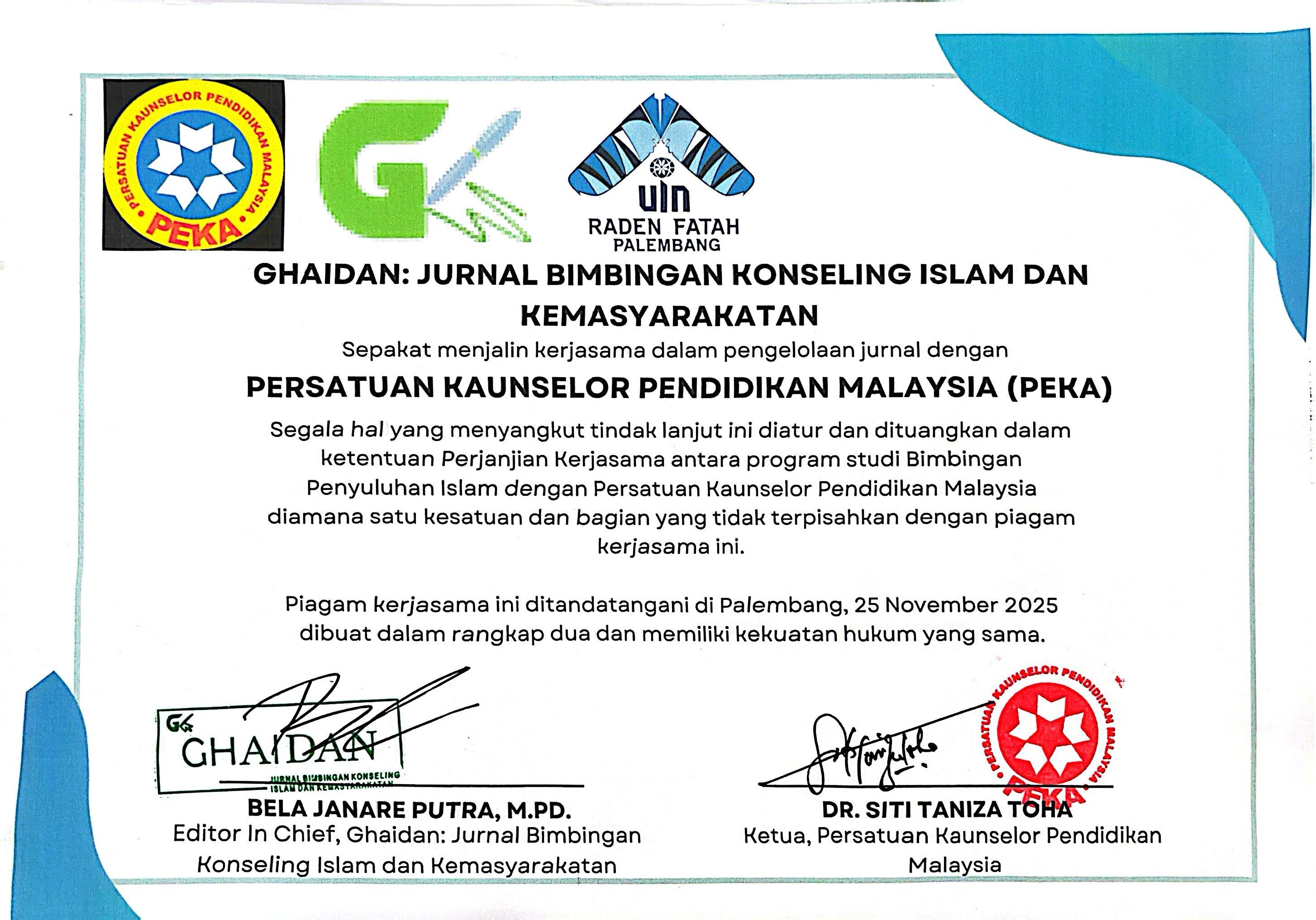Resiliensi Pada Siswa Kelas 3 SMK: Keterkaitan antara Self-Control dan Rasa Bangga
DOI:
https://doi.org/10.19109/041vkf45Abstract
Third-grade vocational high school students had high
academic demands and also faced lots of new experiences
and challenges between school, extracurricular activities,
and social life. It raised negative emotions that are
sometimes uncontrollable so that affected student’s ability
to complete their academic assignments well. In this
situation, students were expected to build resilience, self
control, and positive emotions which will make them more
likely to succeed. The aim of the present research was to
determine the relationship of self-control and pride with
resilience in the third-grade vocational high school students.
The research sample consisted of 177 who were selected
through the cluster random sampling method. To collect
data, resilience scale, self-control scale, and achievement
emotions scale were used. The results showed that pride
was the positive emotion that affected student resilience
the most. Also, pride and self-control are positively related
(r=04.76). By using multiple linear regression analysis, the
prediction of the effect of these variables on the resilience
can be obtained. The values of the multivariable
determination coefficient was 0.610, indicating that at least
61% variation on the resilience was determined by
combination of self-control and pride. The results that
increase of self-control and encourage of pride become
more resilience leads to more success causes they allow to
learn and grow in all situations.
KEYWORDS: resilience; self-control; pride, students,
vocational high school
References
Baumeister, R. F., Vohs, K. D., & Tice, D. M. (2007). The strength model of self-control. Current Directions in Psychological Science, 16(6), 351–355. https://doi.org/10.1111/j.1467-8721.2007.00534.x.
Campbell, Kristen N. (2014). Resilience and Self-control among Georgia Southern Students: A Comparative Study Between ROTC Students and NonROTC Students. University Honors Program Theses, 51. https://digitalcommons.georgiasouthern.edu/honors-theses/51.
Christenson, S. L., Reschly, A. L., & Wylie, C. (2012). Handbook of Research on Student Engagement. USA: Springer Science+Business Media. Google Scholar
Goetz, T., Frenzel, A. C., Stoeger, H., & Hall, N. C. (2010). Antecedents of everyday positive emotions: An experience sampling analysis. Motivation and Emotion, 34(1), 49–62. https://doi.org/10.1007/s11031-009-9152-2.
Iqbal, M. (2011). Hubungan antara self-esteem dan religiusitas terhadap resiliensi pada remaja di Yayasan Himmata. http://repository.uinjkt.ac.id/dspace/handle/123456789/4356
Kunhertanti, K., & Santosa, R. H. (2018, September). The influence of students’ self confidence on mathematics learning achievement. In Journal of Physics: Conference Series (Vol. 1097, No. 1, p. 012126). IOP Publishing. Hendriani, Wiwin (2018). Resiliensi Psikologi: Sebuah Pengantar. Jakarta Timur: Prenadamedia Group.https://doi.org/ 10.1088/1742-6596/1097/1/012126
McGuire, Mara. (2018). Reining In The Passions: The Role Of Emotions In Understanding Self-control. Thesis, Department of Philosophy, Georgia State University. DOI: https://doi.org/10.57709/12206459.
Moayery, M., Cantin, L. N., & Martins, J. (2019). How does self-control operate? A focus on impulse buying. Papeles del Psicologo, vol. 40, No.2, 2019. Consejo General de Colegios Oficiales de Psicologos, Espana. DOI: https://doi.org/10.23923/pap.psicol2019.2893.
Morrison, R., & Pidgeon, Aileen M. (2017). Cultivating Resilience and Self-control among University Students: An Experimental Study. Universal Journal of Psychology 5(1): 1-7. https://doi.org/10.13189/ujp.2017.050101
Pekrun, R. (2006). The control-value theory of achievement emotions: Assumptions, corollaries, and implications for educational research and practice. Educational Psychology Review, 18(4), 315–341. https://doi.org/10.1007/s10648-006-9029-9
Pekrun, R., Frenzel, A. C., Goetz, T., & Perry, R. P. (2007). The control-value theory of achievement emotions: An integrative approach to emotions in education. In P. A. Schutz & R. Pekrun (Eds.), Emotion in education (pp. 13–36). Elsevier Academic Press. https://doi.org/10.1016/B978-012372545-5/50003-4
Pekrun, R. (2014). Emotions and Learning. Educational Practices Series. Belley, France: International Academy of Education. Google Scolar
Reivich, K., & Shatté, A. (2002). The resilience factor: 7 essential skills for overcoming life's inevitable obstacles. Broadway Books. Google Scholar
Sagar, Mehmet Enes. (2021). Emotion Regulation Skills and Self-control as Predictors of Resilience in Teachers Candidates. International Education Studies, Vol. 14, No. 6. Published by Canadian Center of Science and Education. DOI: https://doi.org/10.5539/ies.v14n6p103.
Tugade, Michele M., & Fredrickson, Barbara L. (2004). Resilient Individuals Use Positive Emotions to Bounce Back From Negative Emotional Experiences. J Pers Soc Psychol. 2004 Feb; 86(2): 320-333. DOI: https://doi.org/10.1037%2F0022-3514.86.2.320.
Downloads
Published
Issue
Section
License
Copyright (c) 2024 Rika Agustiningsih, Yusrinda Silvianis Diwanti, Rovi Husnaini

This work is licensed under a Creative Commons Attribution-ShareAlike 4.0 International License.





